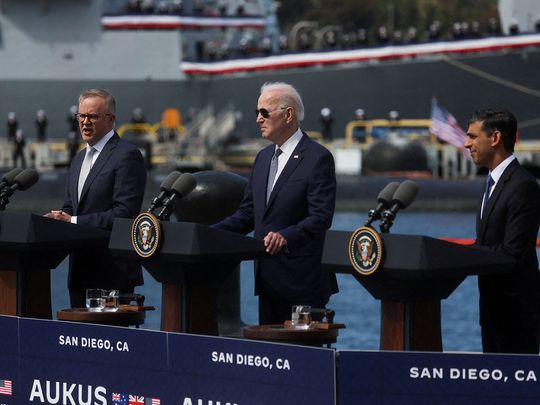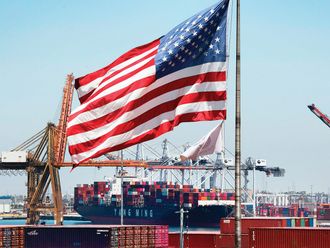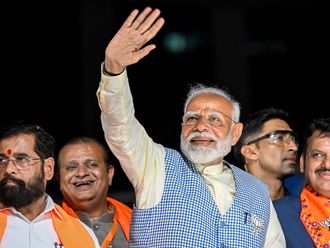
The US Congress has passed legislation allowing the country to sell Virginia class submarines to Australia under the AUKUS security pact.
Sweeping legislation covering a wide range of military priorities including Aukus passed the US House of Representatives, a day after it cleared the Senate.
The Australian government has expressed satisfaction with the latest progress, eagerly anticipating legislative approval before the US enters the politically charged arena of a presidential election year.
Deputy Prime Minister Richard Marles conveyed that Australians can now feel assured about the realisation of this long-term agreement, citing the robust bipartisan support in the US Congress.
Australia’s regional engagement
At $244 billion spread over 30 years, this is the most expensive military project ever undertaken by Australia. As a first step the AUKUS provides for the sale of three nuclear powered submarines to Australia.
Following this delivery, the nuclear propulsion technology will be shared with Australia along with developing a new class of submarines, which will be built in Britain and in Australia.
China believes that AUKUS directly threatens China’s national interests and undermines peace in the region. A claim, AUKUS members reject.
Generally, pacifist Australia’s Labor Party has historically been anti-nuclear and anti-war. It is puzzling that how quickly Labor Party adopted the AUKUS deal originally signed by the Liberal (the Australian liberals are actually conservatives) Prime Minister Scott Morrison.
Opposition within the Labor grass roots has been building for months that led them forcing a debate at the Party’s triennial conference in August, which demonstrated a much deeper disapproval of the AUKUS alliance within the party. Deterrence, critics of AUKUS claim is not a one-word justification for every military position.
Labor’s common member believes that the leadership has shifted focus from Australia’s defence to defending the American strategic and commercial interests. It is considered a detraction from Labor values, which traditionally is seen in party’s commitment towards peacebuilding and “scepticism of US militarism.’
On the regional level, after being seen for years as America’s deputy, Australia is trying under Labor, as it usually does, emphasise upon Australia’s regional engagement.
American military build-up
Despite clear anti-China undertones of AUKUS Penny Wong, the foreign minister travelled to Beijing to celebrate 50th anniversary of diplomatic relations between the two countries.
A former Australian diplomat Jocelyn Chey who has worked in China admitted that “Canberra’s decision-making had long been primarily informed by Washington’s views.”
In the region though, Malaysia and Indonesia are the most vocal expressing AUKUS concerns. The pact is viewed in the context of American military build-up in the region to counter China. Much of academia in New Zealand also thinks Canberra is tight with the US and AUKUS has confirmed the strength of its alliance with Washington.
Open support of AUKUS — as a means of maintaining peace — has come from the Philippines. Manila’s recent military collaboration with the US is retching up its dispute with China as it embraces US military strategy and partnership in the region.
Southeast Asia “does not see China as a competitor,” according to the Singapore Prime Minister Lee Hsien Loong.
The region needs economic and not military engagement.
Sajjad Ashraf served as an adjunct professor at the Lee Kuan Yew School of Public Policy, National University of Singapore from 2009 to 2017. He was a member of Pakistan Foreign Service from 1973 to 2008 and served as ambassador to several countries










